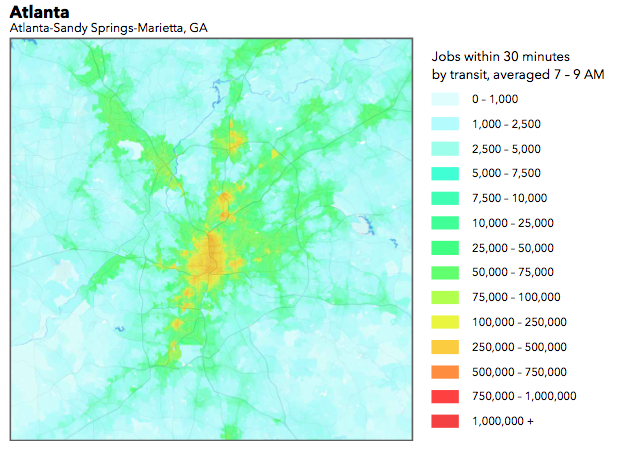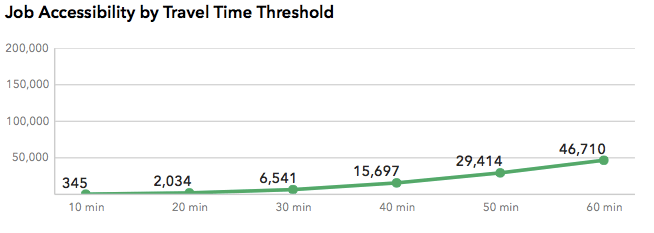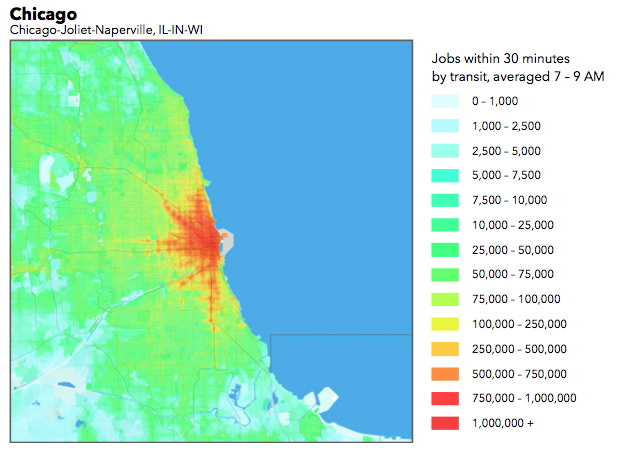
It's been called "the geography of opportunity." And David Levinson is trying to make a science of it.
In a new analysis, Levinson, a University of Minnesota transportation engineering professor, and his colleague Andrew Owen have ranked the 50 largest U.S. metro areas based on job accessibility by transit [PDF].
Levinson and Owen used transit schedules and walking routes to chart how many jobs are accessible in each region from a given point within a given amount of time. Adding Census data about where people reside, they were able to calculate the number of jobs the average worker in each region can reach via transit within 10-minute intervals. The rankings are based on those stats -- the more jobs a typical resident can reach via transit in a short amount of time, the higher a region performed.

The top 10 cities for job accessibility by transit, according to Owen and Levinson, align fairly well with what you would expect:
- New York City
- San Francisco
- Los Angeles
- Washington
- Chicago
- Boston
- Philadelphia
- Seattle
- Denver
- San Jose
The authors said these cities tend to have two things in common: "a combination of density and fast, frequent transit service."

Meanwhile, mid-level performers like Atlanta (#30) combine decent transit systems with very low density and a high level of job sprawl. The very worst performers were sprawling -- many are concentrated in the Southeast -- and had weak transit systems to boot.
The 10 worst regions for accessibility by transit, in descending order, are Kansas City, Indianapolis, Austin, Raleigh, Cincinnati, Orlando, Nashville, Virginia Beach, Riverside, and Birmingham. Some cities, including Oklahoma City, Memphis, Jacksonville, and Richmond, were not ranked due to a lack of transit data.
It should be noted that even in cities at the top of this ranking, transit access to jobs remains poor for many people. For the average Chicago resident, for example, a meager 7.3 percent of jobs are accessible within a 60-minute transit trip. That only looks good in comparison to cities like bottom-of-the-pack Birmingham, Alabama, where the same figure is just 3.3 percent.





